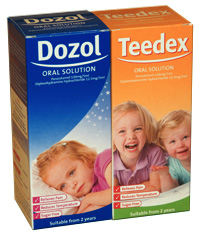NEWS
Western Style Diet Worsens Colon Cancer Outcomes
Submitted by admin on Sun, 21/09/2008 - 16:53.A study published in October 2007 issue of JAMA suggests that western style diet significantly affects recurrence and survival rates after stage III colon cancer treatment.
A previous study, which was conducted on women, showed that a western style diet high in fat and low in fibre increases the risk for colon cancer by as much as 46% compared to those, who adhere to a more prudent diet. Prudent diet (high-fibre and healthy protein diet) was associated with reduced risk for colon cancer.
Cranberry, a superfruit?
Submitted by admin on Tue, 16/09/2008 - 00:47.Cranberry is a widely cultivated plant, with the majority of the crop processed into juice, sauce or dried and sweetened. Cranberry sauce is regarded indispensable in American and Canadian Thanksgiving dishes, but recently it has become a lot more popular, thanks to its high antioxidant capacity and microbe fighting properties. Cranberries are a good source of polyphenol antioxidants, anthocyanidin flavonoids, cyanidin, peonidin and quercetin.
Essential Fatty Acid Supplementation Improves Cognition in Pre-term Infants
Submitted by admin on Mon, 15/09/2008 - 14:27.Essential fatty acids are fatty acids which cannot be synthesised by the human body and must therefore be obtained from the diet. Fatty acids are important constituents of cell membranes, affecting their fluidity and functionality and are especially important in the membranes of neurons.
Soft Drinks May Increase Metabolic Risk
Submitted by admin on Sun, 14/09/2008 - 09:10.A study which was published on-line in Circulation in Jul 2007 suggests that drinking more than one soft drink per day poses a 44% greater risk for developing metabolic syndrome as compared to drinking less than one soft drink per day.
Metabolic syndrome is a cluster of various risk factors, like elevated (but not yet over the limit) triglycerides and glucose levels and increased waist circumference, that increase the risk of heart disease, stroke and diabetes.
Exercise Reduces Risk of Premenopausal Breast Cancer
Submitted by admin on Sun, 14/09/2008 - 08:02.Exercise is beneficial for our health in many ways. The obvious one is maintaining optimal body weight and improving the functioning of our cardiovascular system, but exercise was also shown to reduce the risk for postmenopausal breast cancer and according to the newest study, physical activity in adolescence and early adulthood may also reduce the chances for premenopausal breast cancer by as much as 23%.
Iron-Fortified Formulas May Not Be A Good Choice For Healthy Infants
Submitted by admin on Wed, 27/08/2008 - 03:41.Iron-sufficient infants, who were fed iron-fortified formula scored lower on IQ tests than their peers, who were given a low-iron formula.
The study was conducted on Chilean infants who were not anemic, but were still given iron fortified formula to prevent iron deficiency. They were randomly arranged into two groups, receiving either iron-fortified formula (12 mg/L ferrous sulfate) or low-iron formula (2.3 mg/L ferrous sulfate) for a year, from 6 months of age.
Obesity Is Not Inevitable
Submitted by admin on Wed, 27/08/2008 - 01:50.Results from many previous studies indicate that obesity is strongly associated with several major health risks and that it contributes to the increased incidence or death, including those from various types of cancers. Over the past 20 years the rates of obesity have tripled in developing countries like China, India, and Russia. This is being attributed mainly to a greater abundance of 'cheap calories' and increasingly sedentary lifestyles. Trends toward increasing obesity are however most concerning in United States, where 28% of men and 34% of women can be considered obese (BMI over 30).
Long-term ibuprofen use cuts Alzheimer's risk
Submitted by admin on Sat, 24/05/2008 - 23:50.Elderly people, taking ibuprofen for more than 5 years, have a 40 percent reduced risk of developing Alzheimer's disease, the latest study suggests.
Alzheimer's disease is the most common cause of dementia, afflicting 24 million people worldwide. To date, there is still no cure for Alzheimer's with only a few partially effective treatments. Alzheimer's is caused by accumulation of certain proteins in the form of amyloid plaques. This leads to inflammation and atrophy of brain tissue. Previous studies showed that the NSAID (nonsteroidal anti-inflammatory) drug ibuprofen reduced serum levels of a protein called amyloid beta-1-42 (Aβ 1-42), which is present in these senile plaques. This lead researchers to investigate whether anti-inflammatory drugs might help in delaying the onset of Alzheimer's disease.
Opiate Blocker Naltrexone May Help Women Stop Smoking
Submitted by admin on Sat, 24/05/2008 - 19:19.Evidence suggests women have a reduced response to nicotine replacement and other traditional treatments which is why more targeted pharmacotherapy and intervention strategies may be necessary to improve their quit rates. Opioid antagonist naltrexone is proving to be an effective adjunctive pharmacotherapy approach for female smokers.
Safety of Cold Medicine in Young Children Under Scrutiny
Submitted by admin on Sat, 17/05/2008 - 12:38. |
| Image 1: New Teedex and Dozol packageing. |
In October 2007 a panel of US government advisers concluded that over-the-counter cold and cough medicine should not be given to children aged between 2 and 5 years as there is no proof of their efficacy. In March 2008 the British followed suit, but only limited the sale of cough and cold medicines for children under 2 years old. To date the Irish Medicines Board has only issued a statement saying that the use of cough medicine in children in under review, but has not taken any action in this respect.
FDA scrutinised cough and cold medicine for children, taking a close look at their efficacy and safety. Taking FDA's recommendations into consideration, government panel members voted 13 to 9 in favour of the proposal to withdraw cold medicine for children between 2 to 6 years old.
 Delicious
Delicious Digg
Digg Facebook
Facebook Google
Google